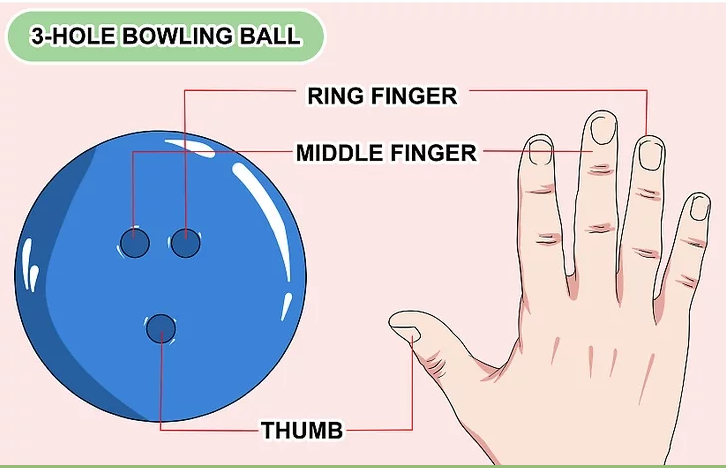Navigating the process of a tenant moving out can be complex and legally bound. Landlords and tenants both have rights and responsibilities, and understanding the notice period for eviction is essential.
In this comprehensive guide, we will explore the intricacies of how much notice a landlord must provide to a tenant when it’s time to move out. So, if you are a landlord or a tenant, this article will help you navigate this aspect of the rental process with confidence and clarity.

How Much Notice Does a Landlord Have to Give a Tenant to Move Out?
If a tenant violates the lease or the rental agreement, the landlord can provide a “Notice to Quit” with a specific timeframe, often ranging from 3 to 30 days, allowing the tenant to correct the violation or vacate the premises. For non-payment of rent, landlords typically issue a “Pay or Quit” notice, giving tenants a brief period, often 3 to 7 days, to pay the rent owed. In cases of lease termination, the notice period usually aligns with the lease terms, often requiring 30 days’ notice for month-to-month leases. It’s crucial to check your local laws and lease agreement for specific notice requirements in your area.
Table of Contents
Understanding the Basics
Tenants may be required to vacate a rental property due to the following reasons:
Lease Violations or Lease Termination
If a tenant violates the terms of the lease agreement, such as causing damage to the property or engaging in illegal activities, landlords can issue a “Notice to Quit.”
This notice typically specifies the violation and provides a timeframe for the tenant to remedy the situation or vacate the premises. The notice period can vary significantly by state and local laws, ranging from as short as 3 days to as long as 30 days.
Non-Payment of Rent
When a tenant fails to pay rent on time, landlords usually issue a “Pay or Quit” notice. This notice informs the tenant that they have a specific period, often ranging from 3 to 7 days, to pay the overdue rent in full or vacate the property. If the tenant fails to comply within the given timeframe, eviction proceedings may begin.
Lease Termination for Month-to-Month Tenancies
In cases where a lease is on a month-to-month basis, either the landlord or the tenant can terminate the lease by providing a notice of termination. The notice period typically aligns with the rental payment cycle and can range from 30 to 60 days, allowing both parties adequate time to plan for the move.
Lease Agreements
The foundation of a landlord-tenant relationship is the lease agreement. Learn how the terms of the lease, such as its duration and renewal clauses, can impact the notice period.
State-Specific Laws
Each state has its own laws governing landlord-tenant relationships, including the notice period required for eviction. Familiarize yourself with the regulations in your state to ensure compliance.
Types of Notices
Landlords typically provide two types of notices: “Pay or Quit” notices for unpaid rent and “Notice to Vacate” for lease violations or the end of a lease term. Understand the differences and when each is applicable.
Pay or Quit Notices
Applicability
Landlords issue “Pay or Quit” notices when a tenant has not paid their rent on time, as stipulated in the lease agreement. It serves as a formal warning to the tenant that they must pay the overdue rent within a specified timeframe or face eviction proceedings.
Timeframe
The notice period for “Pay or Quit” notices varies by state and local laws. Commonly, tenants are given 3 to 7 days to pay the overdue rent or vacate the property.
Steps Involved
- The landlord serves the notice, either in person or via certified mail, to the tenant.
- The notice specifies the exact amount of unpaid rent and the deadline for payment.
- If the tenant pays the overdue rent within the stipulated timeframe, they can remain in the property. If not, the landlord may initiate eviction proceedings.
Notice to Vacate
Applicability
Landlords use “Notice to Vacate” when tenants violate the terms of the lease agreement, or when the lease term is coming to an end. This notice informs the tenant that they must move out by a certain date. It can also be used when a tenant is on a month-to-month lease and the landlord wishes to terminate the tenancy without citing a specific violation.
Timeframe
The notice period for “Notice to Vacate” varies based on the reason for eviction and local regulations. Typically, it ranges from 30 to 60 days for month-to-month leases.
Steps Involved
- The landlord serves the notice, usually in writing and in compliance with local laws, outlining the reason for eviction (lease violation, lease termination, etc.).
- The notice specifies the date by which the tenant must vacate the property.
- Depending on the jurisdiction and reason for eviction, tenants may have the option to remedy the situation (e.g., curing lease violations) within a specific timeframe to avoid eviction.
Tenant Rights and Protections
Right to Cure
Applicability
The “Right to Cure” is a tenant protection that exists in many states. It allows tenants to rectify lease violations or non-compliance issues before facing eviction.
This protection typically applies when tenants breach specific terms of their lease agreements, such as failing to pay rent on time, having unauthorized occupants, or violating other lease provisions.
How It Works
When a tenant commits a lease violation, the landlord usually provides a “Notice to Quit” or “Notice to Vacate,” specifying the breach and the required remedy.
The tenant is given a certain period, as determined by state and local laws, to correct the violation. During this time, the tenant can pay overdue rent, rectify the lease violation, or comply with the terms of the notice.
Timeframe
The timeframe for the “Right to Cure” varies by state and depends on the nature of the violation. Commonly, tenants are given a reasonable period, typically ranging from 3 to 30 days, to address and rectify the issue.
Tenant Responsibilities
To benefit from the “Right to Cure,” tenants must take prompt action to remedy the violation within the specified timeframe. This may involve paying rent arrears, resolving lease violations, or complying with the terms outlined in the notice.
Retaliation Protections
Applicability
Many states have laws in place to protect tenants from retaliatory evictions. Retaliation occurs when a landlord seeks to evict a tenant in response to the tenant exercising their legal rights or reporting violations by the landlord.
Such rights could include requesting repairs, asserting their rights to habitable living conditions, joining a tenant association, or reporting housing code violations.
What Constitutes Retaliation
Retaliation can take various forms, such as raising the rent significantly, decreasing services or amenities, or, most notably, attempting to evict a tenant in response to their legal actions.
To prove retaliation, tenants must demonstrate that their actions preceded the landlord’s efforts to evict them, creating a clear cause-and-effect relationship.
Tenant Protections
If a tenant believes they are facing a retaliatory eviction, they should document all relevant communication and actions taken.
Additionally, tenants should consult local tenant-landlord laws and regulations to understand their specific rights and protections.
When faced with retaliation, tenants may have the right to legal remedies, such as the ability to counter-evict the landlord or seek financial damages.
Conclusion
Understanding the notice period for eviction is essential for both landlords and tenants. It ensures a fair and legally compliant process during the tenant’s move-out.
By knowing your rights and responsibilities, as well as the specific regulations in your state, you can navigate this aspect of the landlord-tenant relationship with confidence and ensure a smooth transition. Remember to seek legal advice if you have concerns about eviction or notice periods.
Related: How to Legally Screw Over Your Landlord [15 + Tips To Scare Your Landlord]
Frequently Asked Questions
Can a landlord evict a tenant without notice?
Generally, no. Landlords must provide notice to tenants before initiating eviction proceedings, except in cases of extreme misconduct.
How long is the notice period for unpaid rent?
The notice period for unpaid rent varies by state but typically ranges from 3 to 10 days.
Can a tenant dispute a notice to vacate?
Yes, tenants have the right to dispute a notice to vacate if they believe it’s unjust. Consult with an attorney or tenant association for guidance.
Are there federal laws regarding notice periods?
While federal law does not specify notice periods, state laws govern landlord-tenant relationships, including eviction notice requirements.
What happens if a landlord doesn’t follow the notice period?
Failure to follow the proper notice period can result in legal consequences for landlords, such as delaying the eviction process.
How can tenants protect themselves from unfair eviction?
Tenants should familiarize themselves with their state’s laws, document all communication with their landlord, and seek legal advice if they believe an eviction is unjust.







